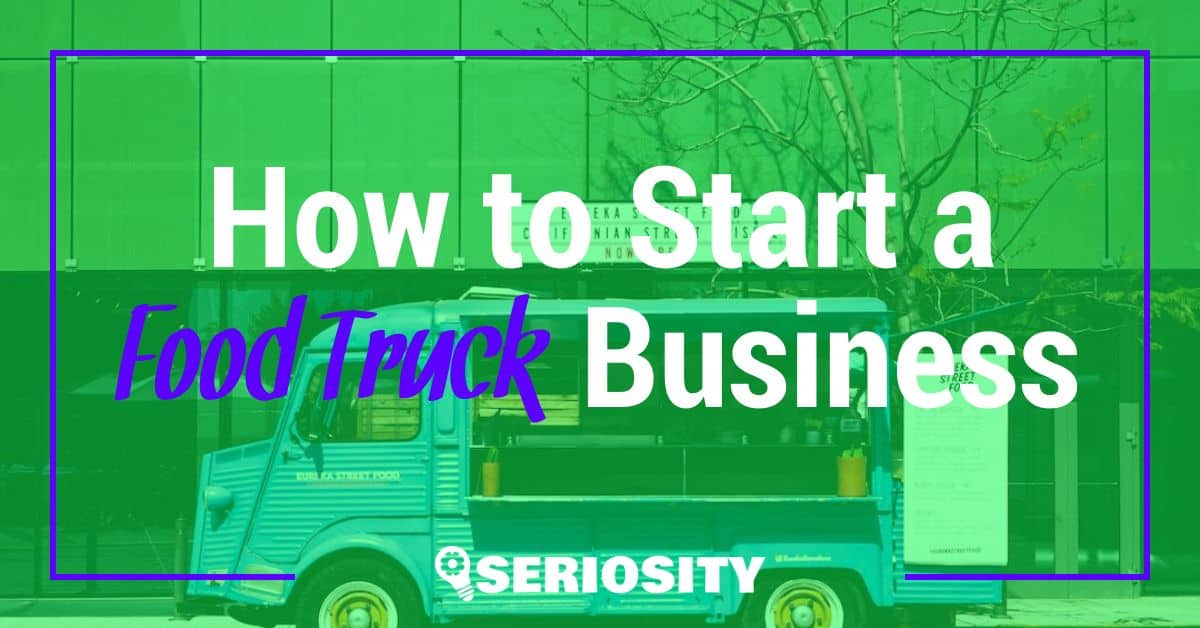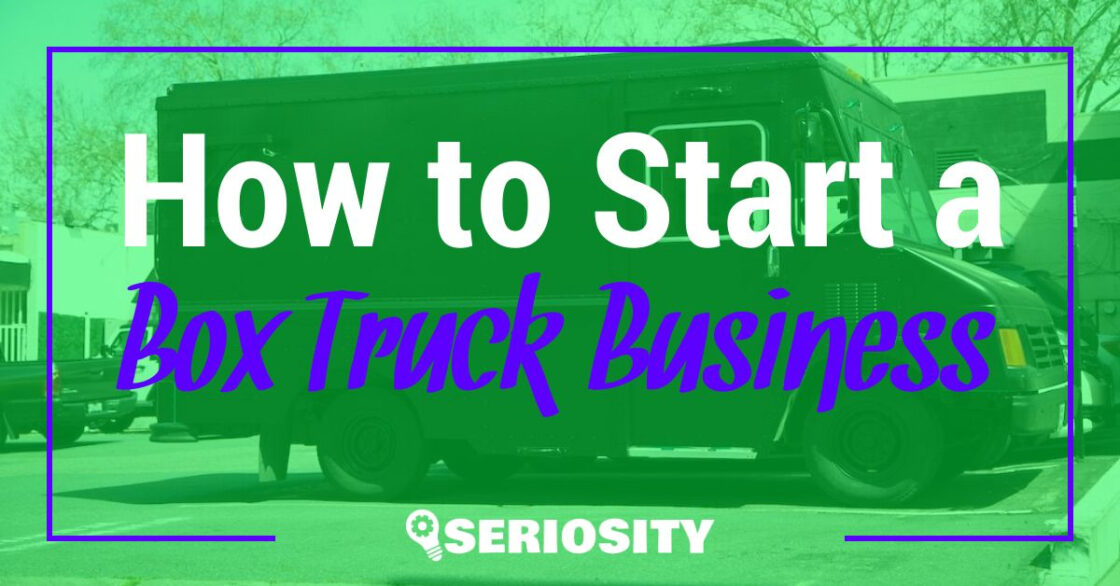Starting a food truck business has become an increasingly popular entrepreneurial endeavor in recent years. This type of mobile food service offers the exciting opportunity to combine culinary creativity with the freedom of a flexible business model. However, like any business venture, starting a food truck requires careful planning, dedication, and an understanding of the steps involved in launching a successful enterprise.
The first step in starting a food truck business involves researching the local food truck scene and identifying opportunities for unique concepts that will stand out in the marketplace. Once a concept has been selected, a comprehensive business plan must be drafted, detailing the operational model, target audience, financial projections, and overall strategy. Obtaining funding, securing the necessary licenses and permits, and purchasing a food truck that fits the needs of the business are also critical steps in the process, laying the foundation for growth and success.
Aspiring food truck owners must also invest in marketing and advertising to create awareness of their mobile enterprise. This includes carefully constructed branding, consideration of social media presence, and utilization of traditional marketing methods to establish a strong customer base. By taking these steps and considering all aspects of the business, entrepreneurs can confidently embark on the journey toward creating a successful food truck operation.
Creating a Business Plan
Executive Summary
The executive summary provides an overview of your food truck business, outlining the main aspects and goals. Briefly touch on the type of food you’ll be offering, the target market, and your unique selling points. It should also highlight your projected revenue and financial projections.
Company Description
In this section, describe your food truck business in detail, including its mission, vision, and values. Explain the type of food you’ll be serving and the theme or ambiance you’re aiming to create. You may also want to mention any industry trends or opportunities that support your food truck’s concept.
Market Analysis
A thorough market analysis is essential for your food truck’s success. This should include:
- Target Market: Identify your ideal customer demographic based on factors such as age, location, and income.
- Demand: Determine the level of demand for your food truck’s offerings by researching and analyzing local food trends, preferences, and competitors.
- Competitors: Understand the competitive landscape by identifying other food trucks and similar businesses in the area, evaluating their strengths and weaknesses.
Financial Projections
Establishing concise financial projections will help determine the viability of your food truck business. This section should include the following key components:
- Start-up Costs: Provide an itemized list of the expenses you’ll incur to establish your food truck business, e.g., truck purchase, kitchen equipment, permits, etc.
- Revenue Projections: Estimate your food truck’s monthly revenue based on your target market size, the price of your products, and expected sales volume.
- Expenses: Calculate your monthly operating expenses, such as food costs, fuel, staff salaries, and maintenance.
- Break-even Analysis: Determine the point at which your food truck’s revenue will cover its expenses, helping you understand when you can expect to become profitable.
By creating a robust business plan with a comprehensive executive summary, company description, market analysis, and financial projections, you’ll have a solid foundation for your food truck business venture.
Choosing Your Food Truck Concept
The first step in starting a food truck business is to choose your food truck concept, which will guide your menu, cuisine, name, and logo. A concept is essential as it sets the foundation for your business and helps differentiate you from competitors.
Begin by researching the local food truck scene to identify gaps and opportunities. Look for cuisine types or food items that are popular but may lack representation in your area. Alternatively, choose a cuisine or food item you are skilled at preparing or passionate about, as your enthusiasm will translate into higher-quality offerings. Ensure you maintain a focused and unique menu that is both profitable and easy to reproduce.
Creating a memorable and catchy name for your food truck is crucial for building a brand identity. Your name should be relevant to your concept and communicate what you offer to customers in a simple and engaging manner. Additionally, it should be easy to remember and pronounce, ensuring potential customers can quickly become repeat customers and recommend your truck to others.
Incorporate your food truck concept into a visually appealing and recognizable logo. Your logo should be simple, clean, and eye-catching to make a lasting impression on customers. It should also help convey your brand’s personality and be versatile enough to use in marketing materials, your vehicle wrap, and online profiles.
By following these guidelines, you will create a strong food truck concept that will connect with customers and help drive success in your mobile culinary venture.
Permits and Licensing
When starting a food truck business, obtaining the necessary permits and licenses is crucial. This section delves into the general and specific requirements to ensure that you operate within the legal guidelines.
Health Regulations
Food trucks, like any other business in the food industry, must comply with health regulations. The steps to meet these requirements typically include:
- Acquiring a Food Service License: You’ll need a Food Service License to operate in most jurisdictions. This usually requires a health inspection and regular follow-up inspections to ensure your truck maintains the prescribed hygiene standards.
- Obtaining an Employee Health Permit: This permit ensures that your staff is well-versed in food safety practices and abides by them. Staff may need to get certified in food handling or undergo training before working on the food truck.
Vehicle Requirements
In addition to health regulations, your food truck must adhere to vehicle requirements. Key vehicle-related permits and licenses include:
- Business License: You will need a business license to start a food truck anywhere. The type of business structure you choose—be it an LLC, Sole Proprietorship, or a Cottage Food Business designation—determines the specific license you’ll need.
- Vehicle Registration: Register your food truck with the appropriate authorities to ensure it’s legally allowed to operate on public roads.
- Mobile Food Facility Permit: This permit typically covers general operating requirements, such as where you can park your food truck, waste disposal, and vending hours.
- Zoning and Parking Permit: Depending on your location, you may need a Zoning or Parking Permit to designate your food truck’s parking and operating location(s).
Keep in mind that costs and permit requirements vary by location, so it’s crucial to research and comply with local regulations. By obtaining all required permits and licenses, you’ll be well on your way to operating a successful food truck business.
Finding a Vehicle and Equipment
When starting a food truck business, one of the most critical aspects is selecting the right vehicle and equipment. This section will provide you with guidance on buying vs. leasing, custom-made food trucks, and essential equipment.
Buying vs. Leasing
When it comes to acquiring a food truck or food trailer, you have two options: buying or leasing. Both options have their pros and cons:
- Buying: Purchasing a food truck gives you full ownership and flexibility. However, the upfront costs can range from $25,000 to $100,000 or more, depending on the size and customization. Moreover, you will be responsible for maintenance and repair costs.
- Leasing: Leasing a food truck can significantly lower your initial investment, as you will not have to pay the total cost upfront. Additionally, some leasing contracts may include maintenance and repair services. On the downside, you will have limited customization options and may have to pay extra for modifications.
Custom-Made Food Trucks
A custom-made food truck is tailored to fit the specific needs of your business. The cost of customization can vary greatly, depending on the size of the truck and the equipment you want to install. Some of the factors to consider when assessing custom-made food trucks are:
- Space and layout: Plan the interior layout to maximize workspace and ensure efficient food preparation and service.
- Equipment needs: Determine the cooking equipment, refrigeration, storage, and counters that suit your menu.
- Branding: Make sure your food truck design reflects your brand’s image through the exterior wrap, fonts, colors, and logo.
Essential Equipment
A food truck’s equipment is vital to its success. The type of equipment needed will depend on your menu and cooking method. However, there are some standard items that most food trucks will require. The following list presents essential equipment you should consider:
- Cooking equipment: Grills, stovetops, ovens, fryers, microwaves, or other specialized cooking appliances.
- Refrigeration: Refrigerators and freezers are necessary to store perishable food items.
- Storage: Shelving, cabinets, and food containers for ingredients and tools.
- Counters/workspace: An adequately sized workspace for food preparation, serving, and storage.
- Ventilation: Proper ventilation systems to keep the cooking area free of excessive heat, smoke, and fumes.
- Utilities: Propane tanks for cooking gas, generators for electricity, and plumbing for water and waste.
Knowing your options and understanding the costs associated with starting a food truck business will help you make informed decisions about vehicles and equipment. When well-selected, these elements can maximize efficiency and provide a solid foundation for your business’s success.
Selecting a Location
Selecting the right location for your food truck is crucial to the success of your mobile food business. This section will provide insights into where you should consider parking your truck and the importance of abiding by parking regulations, as well as the benefits of utilizing commissaries and commercial kitchens.
Parking Regulations
It’s essential to research and understand the parking regulations in your chosen area, as they can significantly impact your food truck business. Each city has its own parking rules, and violating them could result in fines, towing, or jeopardizing your permits and licenses. Some locations where food trucks typically thrive include:
- Downtown areas or business and financial districts
- College campuses
- Food truck parks or designated areas
- Near bars or nightlife hotspots
- Event spaces, concerts, and festivals
When looking for parking locations, be sure to choose a spot with high foot traffic during your operation hours. Be prepared to arrive early, as competitive locations often fill up quickly.
Commissaries and Commercial Kitchens
Commissaries and commercial kitchens provide food truck operators with a fully equipped, licensed facility for food preparation and storage. Some cities or states may even require food trucks to operate out of a commissary or commercial kitchen to maintain proper health and safety standards. The benefits of using a commissary or commercial kitchen include:
- Access to fully equipped, licensed facilities
- Additional storage for food and supplies
- Compliance with local health regulations
- The opportunity to network with other food truck or restaurant owners
In some cases, commissaries may also provide additional services such as vehicle parking or assistance with permits, licensing, and inspections. When selecting a commissary, consider factors such as pricing, location, and the included services to find one that meets your needs.
Overall, selecting a prime location for your food truck and being mindful of parking regulations are paramount to your mobile food business’s success. Additionally, using a commissary or commercial kitchen can provide essential resources and support to help you stay compliant and maintain a safe, sanitary, and successful food truck operation.
Managing Costs and Finances
Initial Investment
Starting a food truck business requires a significant initial investment. The cost to start a food truck ranges from $40,000 to $200,000, depending on the truck’s size, customization, and location. This investment typically covers the following expenses:
- Purchasing or leasing a food truck
- Truck customization (equipment, design, branding)
- Permits and licenses (vary by state and locale)
- Initial food and supply inventory
- Insurance costs
It’s essential to carefully estimate these costs and prepare a budget to ensure that you have enough funds to launch the business successfully.
Operational Expenses
After your food truck business is up and running, you will need to manage ongoing operational expenses. Monthly costs can include:
- Food and supply costs
- Fuel for the truck
- Maintenance and repairs
- Employee wages (if applicable)
- Rent for a commercial kitchen or prep area (if needed)
- Marketing expenses
| Expense Type | Estimated Monthly Cost |
|——————–|————————|
| Food and Supplies | $$$ |
| Fuel | $$ |
| Maintenance/Repairs| $$ |
| Wages | $$$ |
| Rent | $$ |
| Marketing | $ |
It’s crucial to track these expenses and update your budget regularly. Maintaining a separate business bank account for your food truck business makes it easier to manage finances and stay organized.
Financing Options
If you don’t have sufficient funds to cover the initial investment and ongoing expenses, there are financing options available. Possible sources of funding include:
- Business loans: Banks or credit unions may provide loans specifically tailored to small businesses. These loans may come with lower interest rates compared to personal loans.
- Crowdfunding: Online crowdfunding platforms (e.g., Kickstarter, Indiegogo) allow you to raise money from a large group of people in exchange for rewards or equity in your business.
- Friends and family: If you have a strong support network, asking for financial assistance from friends or family members might be an option.
- Grants or competitions: Some government agencies and organizations run programs that offer financial support to startups. Participating in such programs might provide additional funds.
It’s vital to research these financing options thoroughly to find the most suitable one for your food truck business. Keep in mind that each option has its pros and cons, and it’s essential to weigh them carefully before making any decisions.
Marketing and Promoting Your Business
Social Media Strategies
One of the most effective ways to promote your food truck business is by engaging with customers via social media platforms like Facebook, Instagram, and Twitter. Here are some social media marketing strategies:
- Post daily specials, promotional deals, and events to keep your followers informed
- Share mouthwatering photos of your dishes to generate excitement and interest in your offerings
- Collaborate with local influencers to expand your reach to a wider audience
Website and Online Presence
Building a strong online presence is crucial for your food truck business. Here are some steps to develop your website and enhance your online visibility:
- Create a user-friendly and visually appealing website with easy navigation
- Include a blog section to share news, updates, and stories about your food truck
- Ensure your website is mobile-friendly, and optimize it for search engines
- Use Google My Business to showcase your food truck’s location, reviews, and essential information
Partnerships and Sponsorships
Collaborating with businesses, sponsors, and participating in local events can help generate visibility, grow your customer base, and boost your food truck’s reputation. Here are some potential partnership and sponsorship opportunities:
- Forge relationships with local breweries or bars to offer food pairings
- Participate in festivals, farmers markets, and community events to broaden your audience
- Join local food truck associations, business groups, or advocacy groups
Ensure you always maintain the quality and consistency of your food offering in each of these marketing platforms, as this will be a significant factor in attracting and retaining customers.
Legal and Operational Considerations
Registering Your Business
When starting a food truck business, the first step is to choose a legal structure for your company. Common legal structures include sole proprietorships, partnerships, limited liability companies (LLCs), and corporations. The structure you choose will affect your tax and liability responsibilities.
Next, you’ll need to register your business with the appropriate government agencies. This typically includes registering your business name with the local and/or state government, obtaining an Employer Identification Number (EIN) from the IRS, and registering for state and local taxes.
Insurance and Liability
It is essential to protect your food truck business with the proper insurance coverage. Types of insurance coverage you will likely need include:
- General liability insurance: to protect against injuries and property damage claims from customers or third parties
- Commercial vehicle insurance: to protect your food truck and cover any damages or injuries resulting from a vehicle-related accident
- Workers’ compensation insurance: if your food truck has employees, workers’ compensation insurance is typically required by law to cover lost wages and medical expenses for work-related injuries
Additionally, you may need specific permits and licenses related to food service and food truck operations, such as a health permit and food service licenses. The costs for obtaining these permits and licenses generally range from $500 to $1,000.
Employee Management
Managing employees is an important aspect of operating a food truck business. Consider the following when hiring and managing employees:
- Labor laws: Familiarize yourself with federal, state, and local labor laws, including minimum wage, overtime, and break regulations
- Payroll taxes: Food truck owners must withhold payroll taxes from employee paychecks, including Social Security, Medicare, and unemployment taxes
- Training: Ensure employees receive proper training in food preparation, sanitation, and customer service
- Scheduling: Create an efficient work schedule that accommodates your food truck’s operational hours and employee availability
Following these steps and staying compliant with all regulations will help position your food truck business for success.
Industry Insights
Competition and Market Trends
The food truck industry encompasses an extensive range of culinary offerings and experiences, which means that competition is fierce. To gain a competitive edge, truck owners need to make a name for themselves in the market. Dissecting the market trends and learning from successful food trucks can help achieve this. Some observations include:
- Unique, niche cuisines gaining popularity in the market
- Fusion or inventive combinations of different culinary styles
- Use of locally sourced ingredients for eco-friendly operations
One factor contributing to the popularity of food trucks is their mobility, allowing them to cater to various locations and events, unlike stationary restaurants. However, food trucks still face competition from traditional brick-and-mortar establishments and the increasing trend of food carts.
Challenges and Opportunities
Starting a food truck business presents several challenges and opportunities that entrepreneurs must address to ensure success. Some of these challenges include:
- Complying with local laws and regulations: It’s essential to research the local food truck scene and regulations to operate within the law.
- Acquiring permits and licenses: Food truck owners require permits and licenses for their operations, including health and safety permits and business registration.
- Finding the right vehicle and equipment: Startup costs can range from $50,000 to $180,000, with the vehicle being the most significant expense. While a new, made-to-order food truck may cost up to $150,000, purchasing a used truck can save thousands.
In the face of these challenges, there are several opportunities available for food truck businesses, including:
- Catering to a niche or underserved market segment: Researching market trends and identifying gaps in demand can lead to a successful and potentially less saturated niche.
- Collaborations with other food truck owners or restaurants: Partnering with other businesses can offer increased visibility and legitimacy to a food truck business.
- Leveraging technology to expand reach: Utilizing social media and food delivery apps will allow a wider audience to discover the food truck.
By understanding the industry, competition, and market trends, while also identifying and addressing the challenges and opportunities that come with starting a food truck business, entrepreneurs can increase their chances of success in this bustling market.





